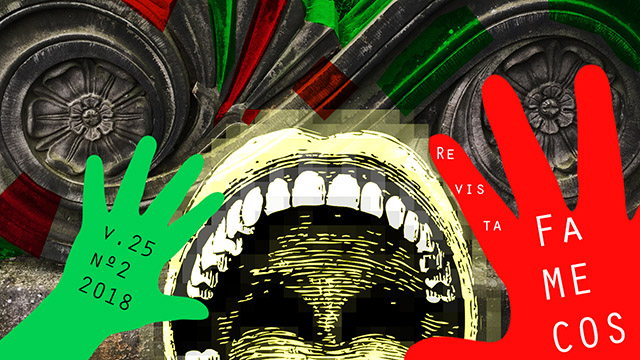Globalization and Deglobalization: Another Dilemma of Post-Modernity
DOI:
https://doi.org/10.15448/1980-3729.2018.2.27918Keywords:
Communication, Globalization, DeglobalizationAbstract
This article will investigate the paradoxical and deglobalizing movement of protectionism, of neo-nationalism, and the closure of nation’s politics frontiers, in relation to the opposite movement of the digital media, Internet, that tends to press the populations for the expansion of the contacts, increasingly globalizing, given the high potential of reach and extension of the perception that these means are able to produce in human relations. The aim is to analyze and understand this impasse that amplifies the uncertainties in society, in addition to revealing the influence of digital media in the process of globalization, and its influence on the constitution of the postmodern subject. Understanding the tensions caused by the dilemma between nationalist political intentions and the globalizing media movement will bring one more component, which will reveal motivations for increasing nationalist discourses, xenophobia, and intolerance as other cultures, ideas, and beliefs. The research is theoretical and exploratory, where a bibliographical survey and the observation of the phenomena. As a theoretical research, is expected the production of a text as result, that can provides subsidies to understanding a phenomenon of our times, as well as the production of a material that could provide access to the theories of communication and political organization to other researchers.
Downloads
References
AUGÉ, Marc. Não Lugares: introdução a uma antropologia da supermodernidade. São Paulo: Papirus, 2004.
BARTHES, Roland. O Rumor da Língua. São Paulo: Martins Fontes, 2004.
BAUMAN, Zygmunt. Vida para Consumo. Rio de Janeiro: Zahar, 2008.
BAUMAN, Zygmunt; MAURO, Ezio. Babel: Entre a Incerteza e a Esperança. Rio de Janeiro: Zahar, 2016.
NETTO, José Teixeira Coelho. Semiótica, Informação e Comunicação. São Paulo: Perspectiva, 1990.
CRUZ, Daniel Nery da. Lypovetsky x Bauman. Revista Conhecimento Prático Filosofia. São Paulo: Escala, Ano 7, ed. 46, p. 18-35, dez. 2013.
HALL, Stuart. A Identidade Cultural na Pós-Modernidade. Rio de Janeiro: DP&A, 2004.
HUTCHEON, Linda. A Poética do Pós-modernismo. Rio de Janeiro: Imago, 1991.
LYOTARD, Jean-François. A Condição Pós-Moderna. Rio de Janeiro: José Olympio, 2000.
LIPOVETSKY. Gilles. Os tempos Hipermodernos. São Paulo: Barcarolla, 2004.
MCLUHAN, Marshall. Os Meios de Comunicação como Extensões do Homem. São Paulo: Cultrix, 1996.
ORTIZ, Renato. Mundialização e Cultura. São Paulo: Brasiliense, 2000.
SANTOS, Milton. Por uma outra Globalização: do pensamento único à consciência universal. Rio de Janeiro: Record, 2007.
Downloads
Published
How to Cite
Issue
Section
License
Copyright
The submission of originals to Revista Famecos implies the transfer by the authors of the right for publication. Authors retain copyright and grant the journal right of first publication. If the authors wish to include the same data into another publication, they must cite Revista Famecos as the site of original publication.
Creative Commons License
Except where otherwise specified, material published in this journal is licensed under a Creative Commons Attribution 4.0 International license, which allows unrestricted use, distribution and reproduction in any medium, provided the original publication is correctly cited.






